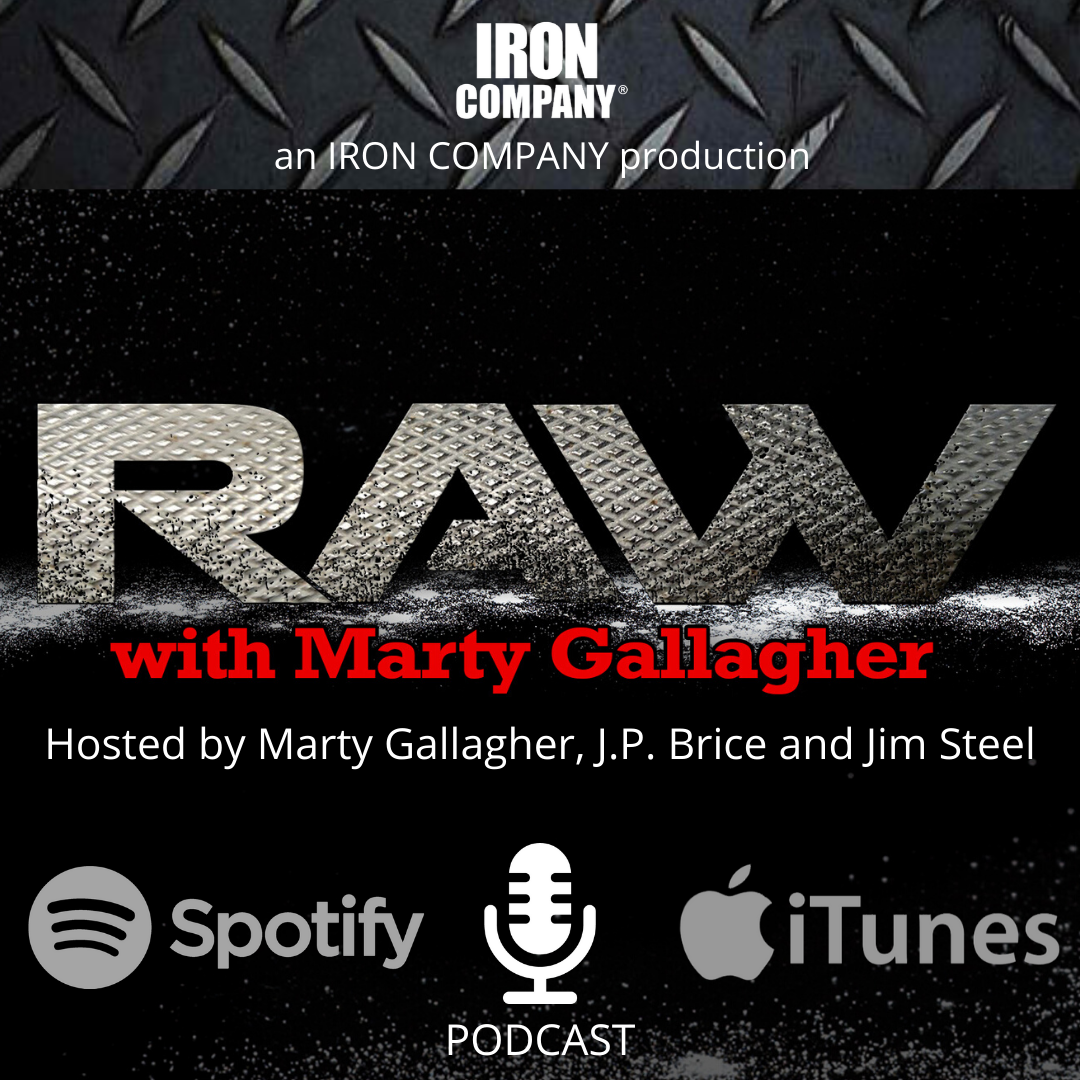
Rudolf Plyukfelder: Man amongst men - Forged Passion Personified
Rudolf Plyukfelder: Murdered relatives, prison camp, slave labor, escape, capture, starvation, and beatings….
Olympic and world champion: Rudolf Plyukfelder (above) in action split cleaning 396
J.P. Brice recently asked me to write an article about athletes that exemplified “forged passion,” a two-word phrase that can have different meanings to different people. One definition of forged passion could be how many obstacles an athlete had to overcome, how severe were those obstacles, and once these obstacles were overcome, how great was the triumph?
If we apply “overcoming obstacles” as the forged passion definition, then I would nominate the unknown Rudolf Plyukfelder as the athlete that has had more to overcome than any athlete I know of, this before attaining as big a prize as there is in all of sport: an Olympic gold medal.
Plyukfelder’s tale actually starts in 1836 when violence between Protestant and Lutheran religious sects caused large numbers of religiously persecuted Germans to immigrate to the Ukraine. The Germans created colonies of well-to-do expatriates in the 1830s. Rudolf Plyukfelder was born in 1927. “Though I was born in the Ukraine, I didn’t speak Russian until age 14.” The Plyukfelder’s were part of a large German-speaking collective farm. “Our farm was big and rich. We lived well off.”
Being affluent, being German-speaking and culturally aloof, made the Ukrainian Germanic clan a prime target for retribution and retaliation when Hitler swept into Russia with 2.5 million men along a 900-mile invasion front in June of 1941.
“In September of 1941, my father and my older brother Vladimir were arrested by the soviet secret police (along with 65 other Germanic male villagers) and shot in a nearby field. All other German-speaking villagers, women and children, my mother, younger brother and myself included, were herded onto boxcars and exiled to Siberia to work in labor camps.” All German-speaking Russians were exiled for 25-years. At age 14, Rudolf was imprisoned in a gulag prison camp and worked 12 hours a day seven days a week. His job was shoveling coal in a Siberian coal mine.
After four years, Rudolf, his mother and brother escaped the prison camp. “We tried to escape, we walked 124 miles on foot. When trying to sneak onto a westward bound train, we were captured and sent back to the gulag.” Rudolf was punished. “Popov, the head mechanic in the coal mine, beat me mercilessly and continually after my recapture. He ruptured my tailbone, a chronic injury that bothered me the rest of my life.” One beating ended in “compensated heart failure,” Rudolf had a permanently weakened heart muscle.
By age 18, Rudolf Plyukfelder, had survived four years of the hardest of hardships. He had a whippet-lean super-strong body. This rock-hard boy miner, a boy old beyond his years, was spotted by a Siberian wrestling coach and asked to try out. “Potapov Ivanovich was my first wrestling coach. Within a year I had become the national far-east and Siberian free-style wrestling champion. I lacked technique but was able to overpower opponents in my weight division. The mine had made me strong.” Rudolf was the Siberian and Far East senior men’s wrestling champion in 1947 and 1948.
The beatings, starvation, eternal work, eternal cold, pain, the continual discomfort, all combined to create a rock-hard body with an off-the-charts pain tolerance. Exiled Russian/Germans were forbidden from travelling. This meant that Rudolf would not be able to travel for wrestling tournaments. He was stranded in Siberia. There was one exception to the rule: Olympic weightlifting.
Weightlifting (press, snatch, clean & jerk) was so popular that imprisoned athletes competing at the regional and national level were exempted from the travel ban. Rudolf wanted to see the wider world. In 1949 at age 22 the Siberian wrestling champion that had never lifted weights took up Olympic weightlifting. “I was a better wrestler than a lifter and would have stayed a wrestler – but I wanted to travel. I did not want to spend the rest of forever in Siberia.”
Rudolf Plyukfelder started exceeding world records in training in 1957. “I was kept off the 1958 world championship team because the authorities felt I was likely to defect while overseas and embarrass them. They considered me a German.” He was a genuine flight risk: there was the matter of his escape and recapture. While the world championships were going on, Rudolf lifted in a competition in Rostov and set four world records. “I wanted to show them what I could have done at the world championships.”
The next year the 1959 the world championships were held in Warsaw, Poland, an Iron Curtain country, and Rudolf was allowed lift. “They figured that even if I ran, there was nowhere to run to in communist Poland.” Rudolf, Rudi to his friends, won the world championships in the 181-pound class. At 5 foot 8 inches in height, Rudolf was an extremely lean and relatively tall for a light-heavyweight.
He remembers meeting his idol, Grigori Novak, a short, 5-4, 185-pound powerhouse, the world record holder in the overhead press (330-pounds) and a man with 18-inch arms. Novak was incredulous that Rudolf could lift the weights he did with his “skinny” physique and 15-inch arms.
In 1960 Rudolf Plyukfelder suffered a training injury severe enough to prevent him from competing. He made a comeback in 1961 and won the USSR national championships and then the world championships in Vienna. Rudi repeated his national championship/world championship double in Stockholm. In 1964 Plyukfelder won the Olympic gold medal at the Tokyo Games.
At age 38, he was, at the time, the oldest athlete to ever win a gold medal. Over his competitive career he was undefeated for six straight years. Rudolf set thirteen world records, 1 press, 5 snatch, 4 clean & jerk records and 3 total records.
Rudolf Plyukfelder retired and turned his attention towards coaching. Because of his Siberian isolation, he was a self-taught weightlifter, a man that in his isolation had unknowingly and unwittingly made many profound discoveries. He crafted a unique approach towards Olympic weightlifting and developed an equally unique approach to teaching and coaching Olympic weightlifters.
At the time, his coaching ideas were rejected as absurd. The Olympic champion was relegated to teaching his off-beat brand of Olympic weightlifting in rural isolation. He set up shop at the ominously named Trud Voluntary Sports Academy, in Shakhty, deep in southeastern USSR. No-where-ville, USSR.
To make a long story short, Rudolf used his methods, honed in Siberian isolation, to turn himself into a world and Olympic champion. He then used these same methods to create six Olympic champions: Aleksey Vakhonin, Vasily Alexeev, David Rigert, Nikolay Kolesnikov, Aleksandr Voronin and Viktor Tregubov. These six men set over 200 world records. Here is an article from 1964 on how Rudolf Plyukfelder trained.
“Rudi’ trains four days a week. He always takes time to warm-up before lifting. He will sprint, leap, jump and do explosive acrobatics until he feels ‘ready.’ In this training session he began with power snatches using both squat snatch and split-snatch technique. He followed power snatches with snatch-grip high pulls. On this day he performed 10 sets of 2 reps in the press, snatch and clean and jerk.
He always includes five auxiliary exercises, i.e. squat, high pulls, power cleans, power snatches off a box, front squats. Rudi spends a lot of time working on his overhead press. He works his Olympic press and included wide grip behind the neck press and auxiliary press lockouts. Rudi also bench presses with wide and narrow grip, and spends time doing incline barbell presses.
Rudi likes weighted dips, eight-rep sets of weighted dips are favored for improving the press. On the days he does not train with the free weights he does road work – something the American lifters do not do. All the Russian lifting champions have found that road work (running) is essential to weightlifting.”
He retired after the 1964 Olympics and began teaching weightlifting at the Trud Voluntary Sports Academy (as opposed to an involuntary academy??) in Shakhty. Another Germanic Russian made his was to Trud in southeast Russia: David Rigert. David’s Germanic family was exiled to the deserts of Kazakhstan during the war. Rigert would set 63 world records and become the greatest middle-heavyweight lifter of all time.
Vasily Alexeev, was from Shakhty, a local that Rudolf plucked from obscurity and turned into the greatest superheavyweight Olympic weightlifter of all time. When the Olympic press was banned in 1972, the heaviest middle-heavyweight press in history was Rigert’s incredible 436 effort. The greatest Olympic press of all-time by anyone was Alexeev’s 523-pound effort.
Alexeev had a serious falling out with Plyukfelder. Alexeev went so far as to make physical threats against the older man, something Rudolf took seriously. Alexeev had a get-out-of-jail free card: he had beat a man nearly to death is a drunken rage in a bar fight and had been imprisoned. Only the fact that he was the greatest Olympic weightlifter in the world with friends in high places sprung the nasty-tempered giant, a notorious bully, from a jail and a long prison sentence.
Alexeev dismissively referred to Rudolf Plyukfelder as “SS Rudolf” implying Plyukfelder and his clan were Nazi collaborators. In the early 1990s the Plyukfelder clan moved from Russia to Kassel, Germany. Rudi has three daughters and five grandchildren. A lifelong resistance trainer, he won the world master title in 1992 at age 63. At age 72, weighing 205 he squatted 370 and snatched 220. At age 90 he would do 10-rep sets of squats with 220.
If the definition of forged passion is defined as overcoming great obstacles to eventually triumph – or in Plyukfelder’s case triumph twice – first as the world and Olympic champion and then as the world’s greatest weightlifting coach, a man that created six Olympic champions (seven counting himself) that set over 200 world records. Rudi produced the greatest 198-pound Olympic lifter (Rigert) in history and the greatest superheavyweight lifter of all time (Alexeev.) His counterintuitive approach towards lifting was born out of his own early isolation.
In terms of overcoming obstacles before triumphing, who is going to trump Rudi’s tale? Who has had Nazi’s, real ones, murder both father and brother? Who has been sent off to a slave labor gulag to shovel coal 12 hours a day, seven days a week at age 14? Who has a escaped a Siberian gulag, walked 124-miles on foot only to be recaptured – and beaten repeatedly?
Struggle, strife, starvation, overwork, and beatings apparently provides an excellent base for both wrestling and weightlifting. From the gulag to the gold medal, I cannot think of a better definition of forged passion.
About the Author
As an athlete Marty Gallagher is a national and world champion in Olympic lifting and powerlifting. He was a world champion team coach in 1991 and coached Black's Gym to five national team titles. He's also coached some of the strongest men on the planet including Kirk Karwoski when he completed his world record 1,003 lb. squat. Today he teaches the US Secret Service and Tier 1 Spec Ops on how to maximize their strength in minimal time. As a writer since 1978 he’s written for Powerlifting USA, Milo, Flex Magazine, Muscle & Fitness, Prime Fitness, Washington Post, Dragon Door and now IRON COMPANY. He’s also the author of multiple books including Purposeful Primitive, Strong Medicine, Ed Coan’s book “Coan, The Man, the Myth, the Method" and numerous others. Read the Marty Gallagher biography here.


